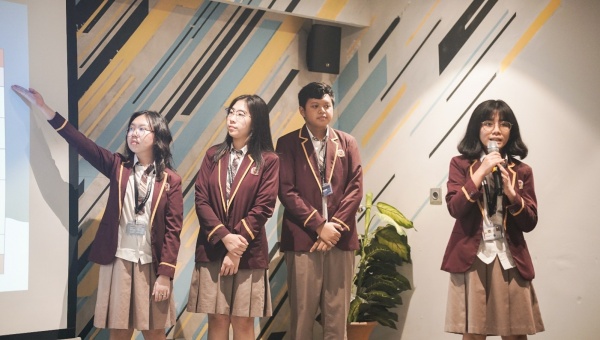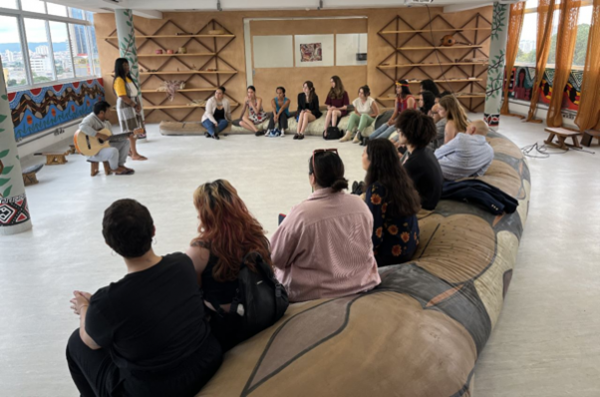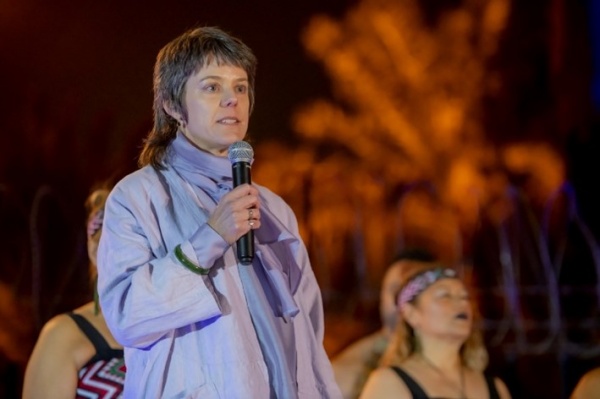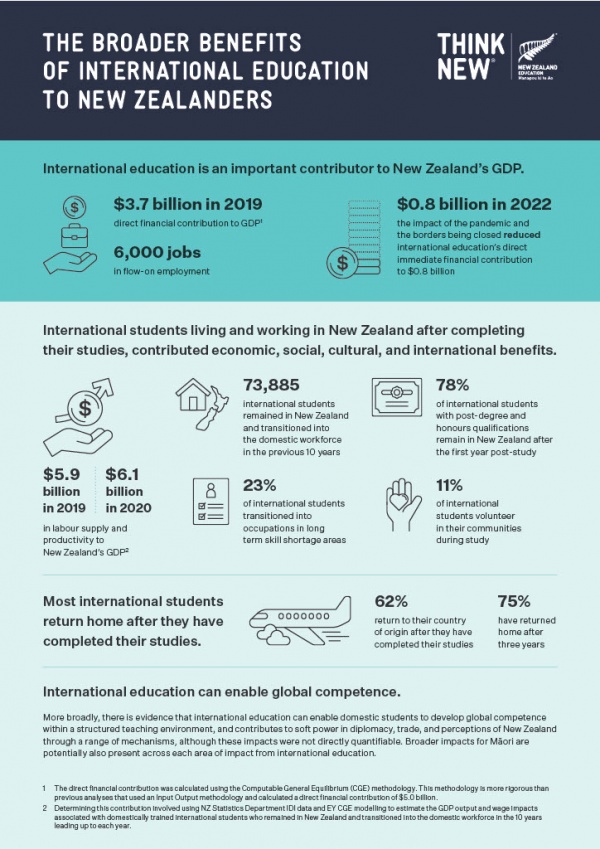Search
Showing 10 of 1954 results for NARSC 2016 conference registration fees student pre advance late July 2016
-
BINUS School Serpong wins the KIWI Challenge 2022
The winning team’s ‘Beyond Borders’ idea involved the development of a travel planning app that streamlines and personalises the travel planning process. The team also had a strong focus on local community engagement and inclusivity across people with different abilities.
The KIWI Challenge is an annual ENZ initiative run in partnership with one of New Zealand’s universities. This year Te Kunenga ki Pūrehuroa – Massey University was nominated and chose the topic of sustainable business and entrepreneurship in the tourism industry.
The competition sees participating students from schools across Java and Kalimantan provide an innovative solution or idea on a given theme.
ENZ runs the competition in collaboration with in-market partner, Kopi Tuli (Deaf Cafe), a hearing-impaired community in Jakarta. This partnership is aligned with ENZ’s strategic framework to nurture and encourage diversity, equity, and inclusion, while also showcasing sign language as one of New Zealand’s official languages.
Education Minister Chris Hipkins officially launched the 2022 KIWI Challenge during his visit to Jakarta in October.
The top prize includes vouchers worth $1,000 NZD with team members being able to undertake a virtual internship with Massey University.
The virtual internship will teach students practical skills to ‘take their idea to the world.’ Through eight hours of customised supervision from some of Massey’s academic marketing experts, students will learn how to add value to their idea and create a digital marketing plan to effectively launch their business solution.
The judging panel included ENZ’s General Manager – Marketing and Communications, Geoff Bilbrough; Massey University’s Director of Strategic Partnerships, Dr. Jeffrey Stangl; and co-founder of Kopi Tuli, Tri Erwinsyah Putra.
“I was hugely impressed with what I saw today, you [the students] can be very proud of yourselves and feel very optimistic about the future that you have before you,” Mr Bilbrough said.
Dr Stangl added, “If the future of the planet is in your [the students] hands, then we’re in good shape. Each one of the teams have thought through some very innovative ideas and solutions to problems unique to Indonesia.”
This year, the competition had 36 teams from 18 schools across the Java and Kalimantan regions participating with their innovative ideas and business pitching skills to develop their idea and create a 2–3-minute video presentation to submit to the competition.
Five teams were shortlisted to attend the finals, which were held live in-person (Jakarta) and online (Zoom). Finalists then presented their business solution for sustainable tourism, followed by a question-and-answer session with the judging panel.

The winning BINUS School Serpong team present their ‘Beyond borders’ strategy. Pictured above (from left to right): Isabel Jo Orleans, Darlene Christabelle Wijaya, Rafael Rangga Natariano, and Calista Zahra Caesariyani
-
Around the world in five
India
Foreign Minister Nanaia Mahuta off to India to promote education, trade, tourism
New Zealand Foreign Minister Hon Nanaia Mahuta is currently in India promoting New Zealand’s education, trade, and tourism interests.
The United Kingdom
From celebration to despair over international students
As demand soars for international education in England, reports of changes to post study work rights for international students is causing concern for the education sector.
International
Industry leaders share their 2023 international education predictions
Education New Zealand Manapou ki te Ao Chief Executive Grant McPherson shared his 2023 goals and predictions for key international education trends alongside other leaders in the sector.
Nepal seeking to become international education hub
Nepal is vying to become a hub for international education, according to the Minister of education Shishir Khanal.
New Zealand
Chinese students rush to return to New Zealand campuses after distance study crackdown
China has reversed its temporary rule allowing foreign universities to deliver online courses to students within China, thousands of students are expected to arrive in New Zealand quickly for semester one of the year.
-
Water safety tips for students
Here are some tips you can share with students about water safety:
- Always check the weather forecast before you go out. Conditions can change fast.
- Never swim or surf by yourself or after drinking alcohol.
- Watch out for strong rips and currents at surf beaches – look out for gaps between the waves and discoloured water near the shore. If you are caught in a rip do not try and swim against it, raise your hand and call for help.
- If you’re swimming at a beach, look for an area with lifeguards and only swim in that area. This area is marked by yellow and red flags.
- Only swim at a depth that is safe for you. If you're just learning to swim or you're not a confident swimmer, stay where the water is shallow and your feet can touch the bottom.
- Don’t swim in your clothes or shoes as they can weigh you down and can be dangerous.
- Check very carefully before jumping or diving into a lake or river, especially if you’re not sure what’s below the surface.
- Always wear a lifejacket when boating or fishing (and make sure the people you’re with are wearing them too).
For more in-depth information, visit this link: https://www.newzealandnow.govt.nz/resources/stay-water-safe.
Resources specific to Auckland can be found here: https://www.dpanz.org.nz/.
And check out NauMai NZ for useful information and advice.
-
Second round of German academic exchange funding programme launching in April
ENZ and the German Academic Exchange Service (DAAD) will launch the second round of the German academic exchange funding programme on 5 April after the programme’s successful first round.
Funding will be available to researchers at higher education institutions in Germany and New Zealand. ENZ will fund early-career academics from New Zealand universities and Te Pūkenga – New Zealand Institute of Skills and Technology to travel to Germany, specifically students who are close to completing their PhD and academics who completed their PhD in the last five years.
With the objective of growing the number of applications in 2023, ENZ has decided to move to a model of providing funding up to NZ$12,500 per year for up to two years, without the need for applicants to show any other sources of funding.
The German academic exchange programme is the result of the signing of a Programmes for Project-Related Personal Exchange (PPP) arrangement between ENZ and DAAD in November 2021 to strengthen academic relations between New Zealand and Germany and promote complementary research activities.
ENZ’s Market Development Manager – Europe, Adina Stoye, said the programme had done much to grow academic collaboration between New Zealand and Germany through the partnership with DAAD, which is the world’s largest funding organisation for the international exchange of students and researchers.
“We are pleased with the success of the first round of the programme and are looking forward to seeing more applications for the second round launching in April.
“As an incentive to encourage more participation, applicants are no longer required to show any other sources of funding,” Stoye said.
Ahead of the programme’s launch, ENZ has organised an online information session on Tuesday 4 April at 7pm NZT (9 am CEST).
For more information on New Zealand German academic exchange programme and to apply, please visit this link.
You can register to take part in the information session on 4 April here.
If you have any questions, please contact ENZ’s Market Development Manager – Europe, Adina Stoye on adina.stoye@enz.govt.nz.
-
International study experience in Brazil excites scholarship recipients
A group of 15 students from the universities of Auckland and Waikato have recently returned to New Zealand after a month’s study in Brazil focusing on history and rights of indigenous people.
The students are group recipients of the Prime Minister’s Scholarship for Latin America, which promotes international study opportunities for New Zealanders.
The group’s itinerary included lectures and field trips around Brazil, including Brasília, São Paulo, the largest city in the southern hemisphere; and Ubatuba, a beautiful, coastal city that joins the Atlantic Forest to the ocean.
Students had the opportunity to meet local indigenous communities such as the Guarani and share their experiences and stories of Aotearoa New Zealand. They discovered the challenges and difficulties faced by indigenous people in Brazil, as well as the richness of their ways of life, music and handicrafts, as well as their connection to their spiritual world.
One of the highlights for the students was their visit to the recently opened Museum of Indigenous Cultures in São Paulo, which offered them a glimpse of the contemporary expression of Brazilian indigenous art, with diverse manifestations such as photography, hip-hop and art installations with social protest.

Members of the Museum of Indigenous Cultures perform a traditional song for visiting students from New Zealand.
The ENZ team in Brazil closely followed the journey of the scholarship recipients across the country.
ENZ’s Senior Market Development Manager – Brazil, Bruna de Natale said the students’ visit was a wonderful opportunity that has further grown the rich, cultural, and academic connections between Brazil and New Zealand.
“We were pleased to see how deeply the students immersed themselves in learning about history and indigenous rights in Brazil and make connections with indigenous communities in the country. It’s amazing to see the Prime Minister’s Scholarships for Latin America enable this rich exchange of ideas and knowledge between New Zealand and Brazil,” de Natale said.
The four-week visit ended in Brasília, where the students synthesised their learning in Brazil by presenting original projects that promote the connection between the indigenous cultures of Brazil and Aotearoa New Zealand.
The students’ insights are also captured on video that can be viewed here on LinkedIn.
-
Growing New Zealand’s education connections in the Middle East
ENZ participated in the re-opening ceremony and stressed the importance of education connections between New Zealand and Saudi Arabia to a 300-strong audience.
A rousing performance of ENZ’s waiata – Manapou ki te Ao – by Ngāti Koraha, a kapa haka group based in Dubai, supported the embassy’s re-opening ceremony.
The event took place in the same week that University of Otago alumna, Rayyanah Barnawi, made the news as she is set to be Saudi Arabia’s first woman astronaut in space when she travels to the International Space Station later this year.
The visit was a useful opportunity to engage on education with Saudi Arabian government officials and to discuss G2G opportunities with NZ Inc agencies in the wider Middle East region.
ENZ’s Senior Advisor for the Middle East, Bronwyn Shanks, said the visit has been valuable in the way it has helped ENZ to lay the groundwork for an education delegation to the Middle East, including Oman, the United Arab Emirates, and Saudi Arabia in May.
“We understand the significance of the Middle East region for our education sector, particularly Te Pūkenga, universities, English language schools and edtech companies.
“We’re building knowledge and connections on the ground that can help open doors for New Zealand education providers looking to grow their links in the region and look forward to supporting them with a high-level education delegation visit.”

ENZ’s Bronwyn Shanks speaking at the New Zealand Embassy re-opening event, with Ngāti Koraha kapa haka group in support
Alongside the embassy’s re-opening event in Riyadh, ENZ and representatives from the University of Waikato and the University of Auckland met with Saudi government connections, including the National Institute for Educational Professional Development (NIEPD), Technical and Vocational Training Corporation (TVTC), Ministry of Culture, and Ministry of Tourism.
The discussions’ focus was on how New Zealand education providers could support Saudi Arabia’s efforts towards upskilling their young people under Vision 2030.
“It was great to meet some of those young alumni hosted by the University of Waikato and hear about the positive impact their New Zealand education experience continues to have now they are back in Saudi Arabia,” Shanks said.
ENZ and the University of Waikato also visited the University of Wollongong in Dubai, one of a network of study centres under university consortium NCUK, with which ENZ and all eight New Zealand universities have a partnership agreement to provide in-country foundation programmes.
Education providers interested in knowing more about education engagement in the region can contact ENZ’s Senior Advisor for the Middle East, Bronwyn Shanks, on bronwyn.shanks@enz.govt.nz.
-
Education New Zealand Manapou ki te Ao welcomes new Board Chair
The Minister of Education, Jan Tinetti, confirmed two new appointments to the Board of Education New Zealand Manapou ki te Ao on 17 March.
Tracey Bridges has been appointed Chair for a three-year term from 1 April 2023. She succeeds Steve Maharey who will finish his term at the end of this month.
Read the Minister’s announcement here.
In addition, two existing Board members have been reappointed. Dr Linda Sissons for a third term until 15 March 2024 and Daniel Wilson to a three-year term.
Tracey Bridges has knowledge of regional economic development, and expertise in strategy, risk, and reputation management, and in social marketing. She is Chair of the Wellington Regional Economic Development Agency Limited (WellingtonNZ), co-founder of The Good Registry and sets on the Boards of Sky Stadium, Whānau Āwhina Plunket, the Wellfed NZ Trust and the Digital Media Trust.
Dr Dona (Therese) Arseneau has been appointed as a member for a three-year term from 1 April 2023. Dr Arseneau also has knowledge of economic development including international education’s contribution to regional economic development, and governance experience in the tertiary sector at the Ara Institute and the Open Polytechnic. She previously chaired Regenerate Christchurch and Enterprise North Canterbury.
-
From the CE: New Zealand education promotion continues at pace
I can assure you I have never seen as much interest in New Zealand as an education destination. Despite the challenges we’re all aware of and the activities of our competitor countries, the New Zealand education offering remains attractive. We all must continue to tell the New Zealand education story.
On Friday 17 March, Minister of Education Jan Tinetti announced new appointments to our Board. I want to acknowledge outgoing Board Chair, Steve Maharey, and welcome Tracey Bridges to the role. Steve has been a stalwart and tireless advocate for international education, both in the community and the corridors of power for over 30 years. In his time as our Chair, he has seen and contributed to enormous change within the sector and ENZ. Personally, I have appreciated his deep understanding, straight talking and clear direction.
Tracey Bridges has knowledge of regional economic development, expertise in strategy, risk and reputation management, and in social marketing. She is Chair of the Wellington Economic Development Agency Limited (WellingtonNZ), co-founder of The Good Registry and sits on the Boards of Sky Stadium, Whānau Āwhina Plunket, the Wellfed NZ Trust and the Digital Media Trust.
Tracey is joined by Dr Therese Arseneau. Dr Arseneau also has knowledge of economic development including international education’s contribution to regional economic development, and governance experience in the tertiary sector at the Ara Institute and the Open Polytechnic. She previously chaired Regenerate Christchurch and Enterprise North Canterbury.
We all know that the contribution of international education is far broader than just the direct and immediate economic impact of the students that come to New Zealand. For the first time, ENZ along with EY have sought to quantify the extent and the value of these wider benefits.
Research commissioned by ENZ that will be released before the end of March found that international education is not only a significant contributor to the New Zealand economy but also that international students living and working in the country bring in a raft of social, cultural, and international benefits. It goes on to explore the extent of the indirect longer-term contribution to New Zealand’s GDP from the small proportion of international students that remain in New Zealand on completion of their studies. The research also quantifies the impact of the pandemic.
Look out for the formal release and when it is available I urge you to download the report from Intellilab.
To complete your international education-related reading list, our Briefing to the Incoming Minister, Minister Tinetti is now available here on the ENZ website. The BIM, as it is known, is prepared when new Ministers are appointed to portfolios.
He maurea kai whiria! – Ignore small matters and direct effort toward important projects!
Ngā mihi nui,
Grant McPherson
-
Applications are open for the Europe and Latin America Engagement Fund
The aim of this funding is to support engagement activities with education agents from Europe, Brazil and Colombia. New Zealand institutions are welcome to submit proposals and apply for up to $3000 per project. We will fund up to 15 projects that focus on engaging with agents from Europe, Brazil and Colombia.
ENZ’s Market Development Manager – Europe, Adina Stoye, said ENZ has a strong and loyal network of agents in Europe, especially Germany and Italy.
“They are keen for support and engagement with New Zealand institutions, and welcome opportunities for events and promotional activities. This initiative is a wonderful opportunity for New Zealand education providers to promote their education offering through building education agent networks.”
Proposed activities should be completed during the second half of 2023 and have firm goals and outcomes in place. Examples of activities are a scholarship campaign, contribution to bringing an agent to New Zealand for a famil, or supporting a trip to attend an event organised by agents.
ENZ’s Director of Engagement – Latin America, Javiera Visedo said education agents in Latin America are keen to learn more about what a New Zealand education has to offer, with students excited at the prospect of studying here. Reconnecting with New Zealand education providers is a top priority for them.”
Applications are open to New Zealand institutions only. This includes New Zealand education providers such as universities, Private Training Establishments (PTEs), English Language Schools (ELS), regional economic development agencies, schools, and peak bodies. Some providers may wish to work together to submit their applications, for example high schools or ELS.
To apply, visit this page. Once applications close, they will be reviewed by a panel of ENZ staff according to the guidelines included on page 5 of the Request for Proposal document.
We will host an information session about the funding and how to apply on Thursday 27 April at 9 am. To register for the session, fill out the form here.
- Applications are open until Friday 12 May at 5pm and applicants will be notified of the outcome on Friday 9 June.
-
Report concludes international education can recover and grow
In 2019, international education’s direct financial contribution to New Zealand’s GDP was $3.7 billion using the Computable General Equilibrium (CGE) methodology. This contribution was reduced to an estimated $0.8 billion in 2020 by the pandemic. The CGE methodology applied by EY to determine the contribution was supported by MBIE and MoE and is more rigorous than previous analyses.
Having established the direct financial contribution, EY explored the extent of the indirect longer-term contribution to New Zealand’s GDP from the small proportion international students that remain in New Zealand after completion of their studies.
EY found that international students living and working in New Zealand in 2019 and 2022 contributed economic, social, cultural, and international benefits. Using NZ Statistics Department IDI data and CGE modelling, EY found that these students contributed in the order of $6 billion in the form of labour supply and productivity to New Zealand’s GDP in both 2019 and 2022.
Determining this contribution involved estimating the GDP output and wage impacts associated with New Zealand educated international students who remained in New Zealand and transitioned into the domestic workforce in the 10 years leading up to each year.
ENZ Chief Executive, Grant McPherson said, “This report confirms the tough time the sector has had over the past two years, highlights the contribution it made in the past, the contribution it makes beyond economic value, and tells us that it is possible to become a vibrant, sustainable and resilient sector in the future.”
The majority of international students, 62%, return to their country of origin after they have completed their studies. A further 13% leave New Zealand after their post-study work experience meaning that in total 75% have returned home after three years, according to the research.
More broadly, EY concluded there is evidence that international education can enable New Zealand students to develop global competence within a structured teaching environment, and contributes to soft power in diplomacy, trade and perceptions of New Zealand through a range of mechanisms. Broader impacts for Māori are potentially also present across each area of impact from international education. These impacts were not directly quantifiable.

For a full-size image of the infographic, click here. For a full copy of the report, click here.

